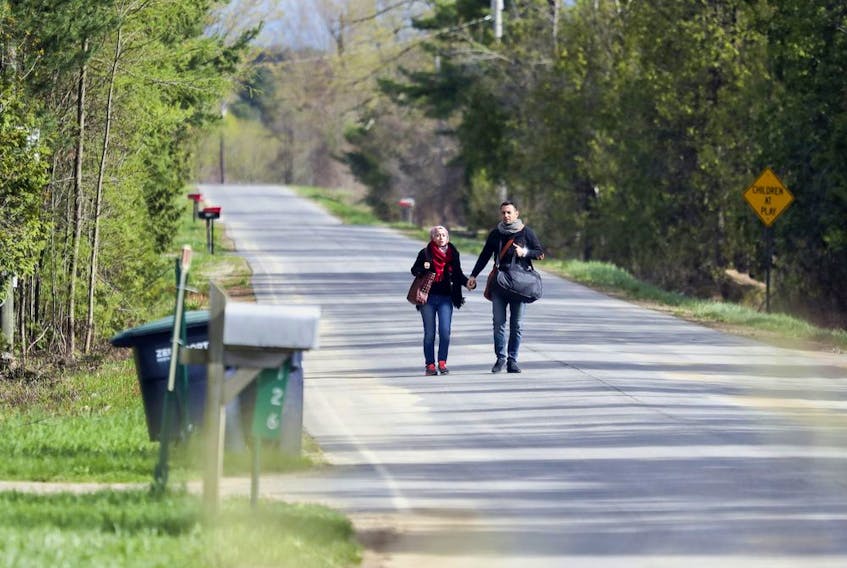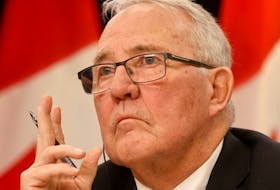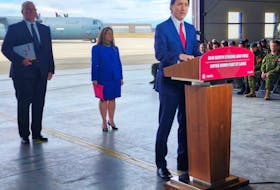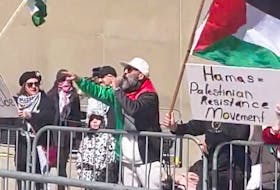I vividly recall the first asylum-seeker I saw cross over at Roxham Road from the United States into Canada: an older East African woman dressed in traditional clothes, wearing flip-flops, who had been driven from Texas. Scared to remain in the United States because of Donald Trump’s policies, she felt she had to abandon home for a second time.
I live in southern Quebec close to the U.S. border. For the past 21 months, as a member of a refugee-support group, I have been going to Roxham Road on the U.S. side. In winter we give out warm clothes and in hot weather we offer water. People usually arrive by taxi from Plattsburgh after travelling there via bus, train, plane or car. They are afraid and some are too nervous to talk. Some know they will be arrested, others don’t. A young woman from Central America burst into tears when I told her. Arrest in her country can involve torture, disappearance and death in police custody.
I follow the commentary about Roxham Road, and often it bears little relationship to what I witness: talk about “invasions”’ and “crises,” about “bogus” refugee claimants described as dangerous and criminal, coming here to “exploit the system.” These are not the people I see. What I’ve seen has been the orderly entry of vulnerable people of all ages — individuals, mothers with their children and whole families — from more than 20 countries.
They are called “illegals” despite the fact that no one making an asylum claim is charged and the arrest is temporary so that people can be taken to Canadian immigration services. Old photos of peak arrivals in August 2017 showing queues of people are still being used, whereas we see only a few crossing at any given time, and so far in 2019 numbers have declined by 37 per cent compared with 2018.
I recognize that some Canadians feel threatened by these refugees, but many of the fears are being fuelled by the false information being spread. Some believe that refugees take resources from others groups. As a wealthy country, we have the means to support the vulnerable, the elderly, veterans as well as those who seek refuge here — until they are able to support themselves, which they are eager to do.
Recognizing someone as a refugee is how we protect those who would be in danger if we did not help. If we turn our backs on them, we are in effect saying some lives matter less than others. The federal government has taken an unwarranted U-turn by reducing the protection of some refugees who enter irregularly and by seeking to renegotiate the Canada-U.S. Safe Third Country Agreement, in order to keep people out.
It was the terrible events of the Second World War — genocide, bombings, persecution and dictatorship — that led to the displacement of millions of people. The creation of the 1951 Refugee Convention was a key response to that reality. Present-day refugees coming here are seeking sanctuary from the same horrors that our ancestors faced.
Whenever I see people struggling with bags and children over the icy path into Canada, after taking the brave yet nerve-wracking decision to leave home, loved ones and culture for an uncertain future in Canada, I feel sorrow for the choices they are pushed to make. Reading about what goes on in their homelands is hard enough, let alone living through it: devastating bombardments, massacres, climate-change and conflict-induced famines, violence against women and girls and persecution because of religion, race, political views or sexual orientation.
Most of us, when we see someone being hurt, want to stop it. Why is it different when the hurt takes place far away? I am grateful to live in a place where I do not live in fear of these realities and I believe no one else should, either.
Wendy Ayotte is a founding member of Créons des ponts/Bridges Not Borders.
Copyright Postmedia Network Inc., 2019









